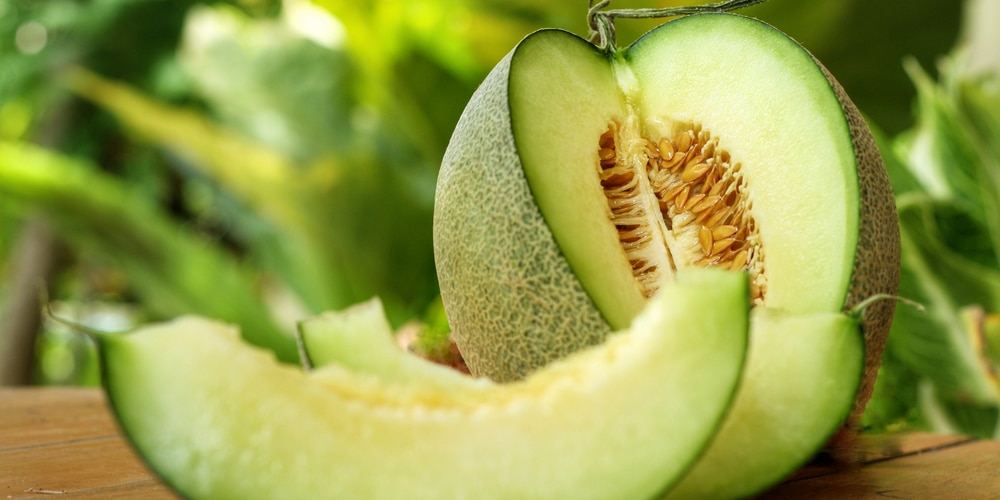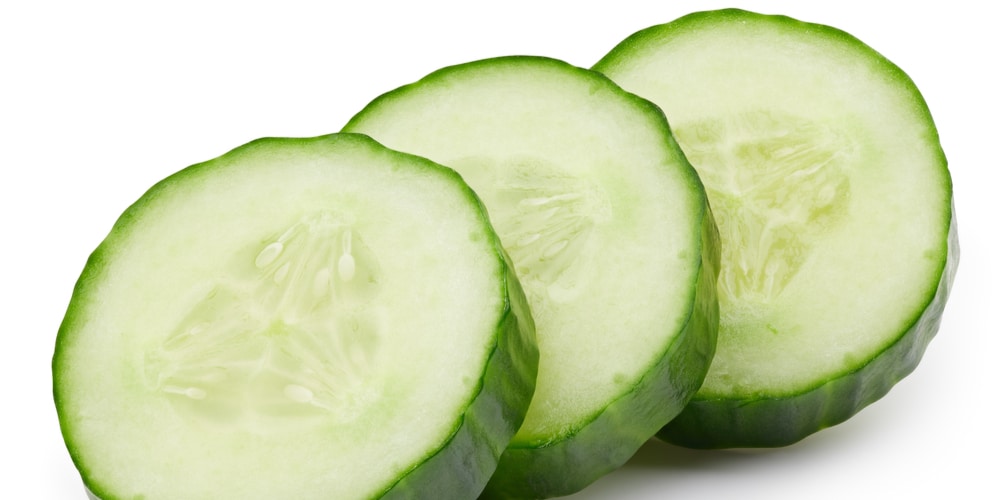‘Are Cucumbers Melons?’ may seem like an odd question. Of course, these plants produce two very different types of fruits. While melon is sweet and juicy, cucumber is slightly bitter and more commonly used in salads. The two fruits are also very different shapes, and for some reason, cats seem to be scared of cucumbers. (just check out all those videos on Youtube).
You may be surprised to learn that cucumbers and melons come from the same family. Let’s look at how cucumbers and melons are grown. We’ll tell you about the similarities and differences between these two popular fruits.
Quick Answer: Cucumbers Are Not Mellons
Are cucumbers melons?
If you were given a cucumber and a melon, you’d be able to tell the difference easily. While cucumbers aren’t melons, they are both members of the Cucurbitaceae family. These two fruits are very closely related and grow in similar ways.
The Cucurbitaceae family contains approximately 975 species of flowering gourds, including cucumbers and various types of melons. These fruits are native to tropical areas, including Africa and Asia; nowadays, melons and cucumbers are grown globally and do well in temperate regions with mild summers and moderate rainfall.
Species in the Cucurbitaceae family are characterized by their vines which bear fruit. While cucumbers and melons come from the same family, they are two different varieties; cucumbers are called Cucumis sativus while Melons are Cucumis melo.
Cucumbers
Cucumbers are long and green with a crisp, fresh flavor and are commonly used in salads. They can also be pickled. Although most people think of cucumbers as being a salad vegetable, they are actually fruits.
Scientifically a fruit is defined as any plant that grows from a flower and contains seeds. Since cucumbers fit this description, they are fruits that are often mistaken for a vegetable due to their taste.
Cucumbers are widely used for various purposes; they can be added to salads, used as a garnish for a cocktail, or even used as an eye soother at a spa. They are also useful to include in healthy recipes and can help people lose weight as they are low in both sugar and calories. Most people eat cucumbers raw, and they are high in fiber, but they are also eaten cooked in some Asian dishes.
Cucumbers are commonly used in the beauty industry as they have anti-inflammatory properties and help slow the aging process and reduce skin problems such as itching and redness.
Melons
Melons also have the characteristics of the Cucurbitaceae family. They are a frost-tender plant that are very sensitive to cold temperatures. Melons vary a lot depending on the variety. They come in slightly different sizes, colors, and shapes and also have slightly differing textures and tastes. The differences between melon varieties are more apparent than other varieties of cucumbers.
Melons are a sweet fruit that has similar properties to cucumbers. They are excellent for weight loss as they are also low in sugar and calories while being high in fiber. Some of the most common melons include watermelons, cantaloupe, and winter melons.
Watermelons
Watermelons are popular worldwide. They contain 90% water, which makes them excellent thirst quenchers. Like cucumbers, watermelons are regularly used in skincare products. They can help calm skin inflammation and boost collagen production to help rejuvenate the skin and create a glowing complexion.
Cantaloupe
Cantaloupes have green and white skin and sweet, juicy fruit. They are most commonly eaten as a dessert or snack and can also be used to flavor ice cream and smoothies.
Winter melon
Winter melons have a long shelf life and store well. They can be grown in the summer and eaten throughout the winter. Winter melons have a white flesh and a blander taste than other types of melons. Due to the taste, the winter melon is generally cooked rather than eaten raw. It can be added to stir-fries and soups.
Growing cucumbers and melons

Cucumber and melons are grown in much the same way, the seeds look very similar, and it can be challenging to tell young seedlings apart. It’s best to start cucumber and melon plants indoors in the early spring and then plant the seedlings into the ground once the soil has reached at least 60 degrees Fahrenheit.
Cucumbers and melons both like to be in the full sun and require soil that’s well-drained and has a neutral or slightly alkaline soil pH. The plants need plenty of water to be able to produce succulent fruit. Water deeply at least once a week and fertilize with potassium and phosphorus for best results. Cucumbers and melons don’t need much nitrogen, and if they are planted in soil that contains high amounts of nitrogen will excessively grow vegetation rather than producing fruit.
Pests and Diseases
If you grow cucumbers and melons too close together, they will be at risk of insects and diseases spreading. Cucumbers and melons are both affected by pests such as cucumber beetles, aphids, and flea beetles. They are also susceptible to diseases including powdery mildew, bacterial wilt, and fungal leaf spot.
Cross-pollination
You may have heard that cucumbers and melons can cross-pollinate and produce an odd fruit. While there is some truth in these concerns, Cucumbers, and melons are incapable of cross-pollination.
Some cucurbits can pollinate each other, but this will only happen with members of the same species. It’s more common for zucchini and pumpkins to cross-pollinate. Even if cross-pollination occurs, the fruit won’t be affected. However, if you were to collect seeds from the fruit and grow them, the next generation of fruit would reflect its mixed parentage.
Conclusion
Cucumbers and melons aren’t the same, but they are part of the same family, so ‘Are cucumbers melons?’ is a common question. These two fruits have similarities in the way they grow. They both also have similar health benefits and are excellent for weight loss and skin care.
If you do decide to grow cucumbers, don’t use them to scare your cat… that’s a cruel trick!
